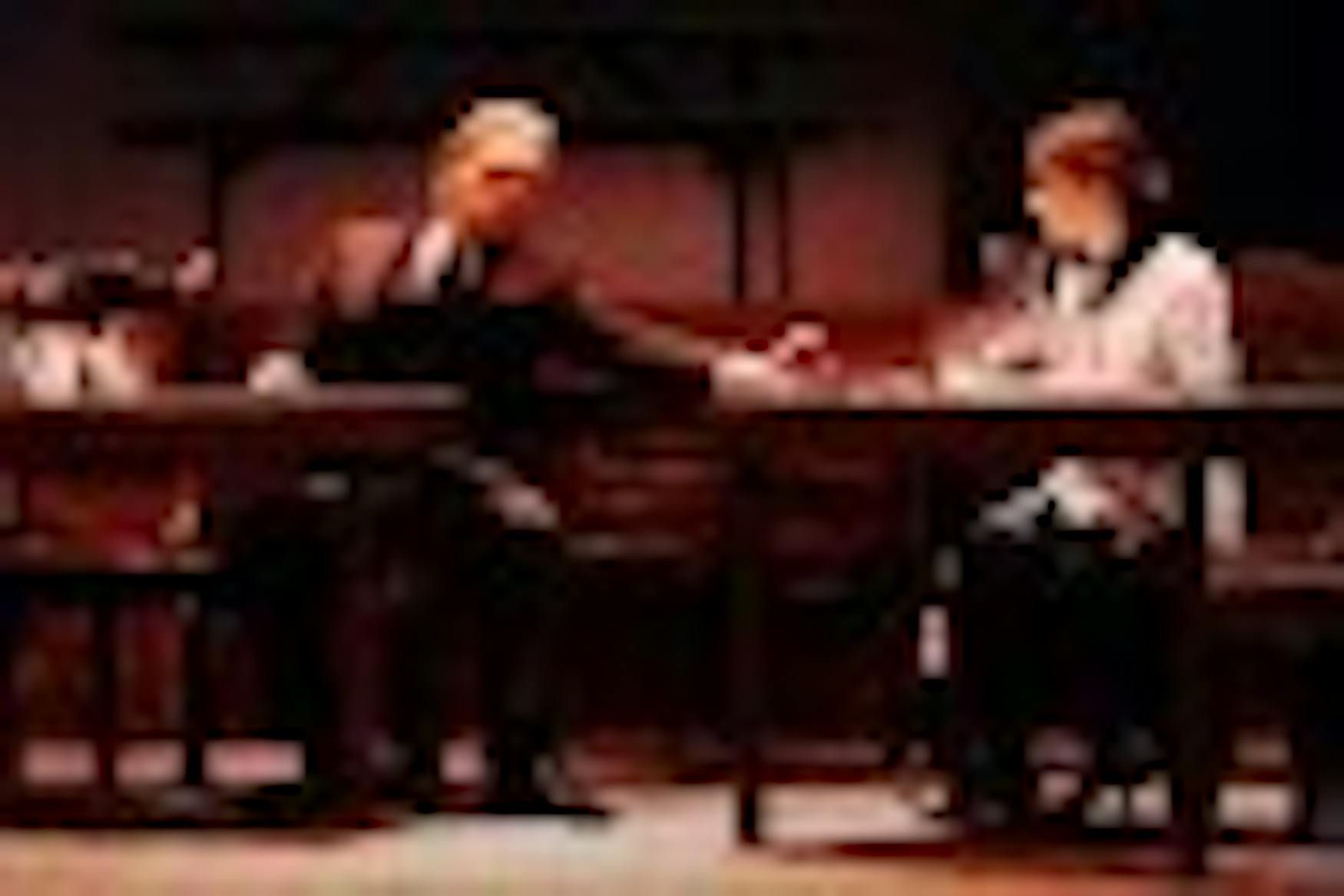HTG sweeps away audience with 'Inherit the Wind'
Frankly, I was prompted to go to Hillel Theater Group's production of Inherit the Wind because of a class-related obligation to do so. However, I am being sincere when I say that I had other options, and my choice to see this live production is one that I do not regret.Before going to the show, I was surprised to find so many people who were familiar with Inherit the Wind, either in its cinematic incarnation or its literary form. Most, however, hadn't seen it performed and were walking into this production with visions of Spencer Tracey and Gene Kelly. I was not afforded this prejudice and am grateful for it. HTG's production does not stir images of Tracey or Kelly, whether or not the film resides somewhere in your subconscious. And while as an ensemble it falters at times, it provides moments when it combines all of the merits theater has to offer to engage an audience the way a film simply cannot.
Inherit the Wind, written by Jerome Lawrence and Robert E. Lee, captures the drama of a small town wrestling with the issue of creationism and evolution in the early 20th century. Hillsboro (said town) becomes the site of controversy when a schoolteacher, Bertram Cates, presents Darwin's theory to his seventh-grade science class. Enter Matthew Harrison Brady, a politician and champion of restrictive religious thought, and Henry S. Drummond, an agnostic, renowned lawyer known for his well-fought but mostly lost legal battles. The town unravels along with the case as citizens contemplate the ideals handed down to them and the possibility of thinking without the confines of religion.
There was a range of performances among the cast, some astounding, some more or less pleasing and others generally lackluster. The cast affirmed the long-held tenets of theater and roles, the ones about small versus large, role versus actor. Jordan Warsoff's '11 rendition of Meeker, the slow-witted jail keeper, was endearing, and though his lines were few, he established his presence whenever he walked on stage. Similarly, as the illiterate Bible-seller Elijah, Ernest Paulin '09 shook the set with the coarse reverberation of his voice, calling to mind the Hallelujah-shouting holy men who inhabit the corners of Times Square.
Adam Patterson's '11 E.K. Hornbeck was initially promising, and though he played the part with the smugness of a big-city journalist, his performance lacked refinement. He delivered his lines with an impressive rhythm, but he failed to emphasize the importance of his words, speaking through pauses and relying on variations of a few hand gestures to convey the message.
Daniel Katz '12, on the other hand, suffered from too much refinement in his character. As the Reverend Jeremiah Brown, Katz moved well on stage and his voice boomed with some authority, but it lacked the overbearing quality one would imagine a reverend would have.
As Rachel Brown, the woman with the spiritual and emotional burden of being both Bertram's love interest and the Reverend's daughter, Suri Ellerton '10 acted with an assured sense of sympathy and supplied the role with plenty of emotion. However, she did not provide the character with a defining moment when Rachel finally presents some conviction, supplying little motivation for her character's turning point.
As far as the performance of the two male leads, there is little for me to critique-in fact, I may have to actively contain my enthusiasm. I much appreciated Daniel Liebman '12 as Matthew Harrison Brady and his relative subtlety, as he provided his character with enough nuance and variation that no action seemed out of place. Had he presented a more overblown character, it could have teetered into a series of uncomfortable and unnecessary bouts of shouting, which would taken away from his consistent and solid performance.
And, though I don't mean to take away the importance of this play as an ensemble piece, I cannot underscore enough the brilliance of Avram Mlotek's '09 portrayal of Henry S. Drummond. Mlotek's combination of pace, projection, speech stylization, physical mannerism and movement on stage from the moment he was introduced made him the central figure on which all eyes fell. The control in his delivery and conviction in his stride alone thrust him into a category of the uncommonly good undergraduate theater performers who are rarely seen.
As I have said before, I do not regret choosing to see HTG's production of Inherit the Wind over the acclaimed film version, and one scene specifically relates to this rationalization: When the court undermines all of Drummond's efforts in presenting scientific evidence and witnesses, he calls Brady to testify as a biblical expert. As one would expect a man of Drummond's cleverness and capabilities to do, Brady leaves the stand shed of his greatness, and as the court participants disperse, the strength of the ensemble is realized as the sounds of laughter and disinterest fill the stage. The offstage shrills of childish giggles, the shuffling of chairs, the clambering of chatter and the clutter of bodies assembled in the courtroom-combined with the knowledge of the physical presence of all of these factors in front of you-embodies failure in such a way that makes it difficult not to turn away.
Turning away, however, is less of a privilege in a theater, whereas a screen is all too permitting for such weakness.



Please note All comments are eligible for publication in The Justice.